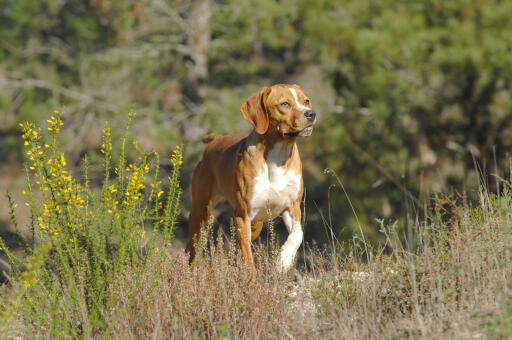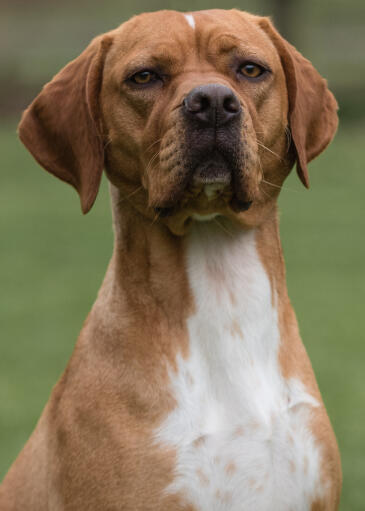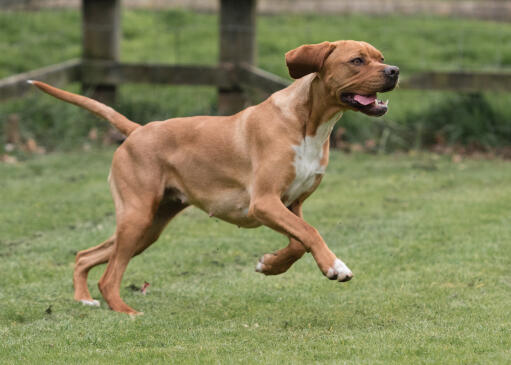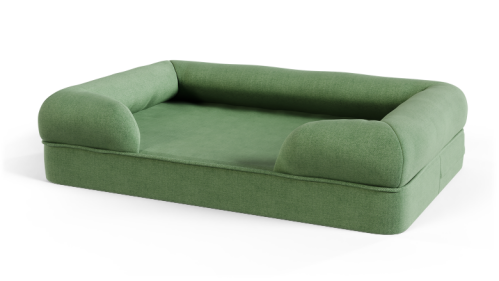Portugisisk markør hund



History
The Portuguese Pointer originated in Portugal and is believed to be thousands of years old. It was bred as a gun dog, to locate and point to birds for the hunters to catch. Originally only bred in royal kennels, it soon became popular with the lower classes and was used mainly to hunt partridge. Over the years the breed numbers declined, but a few animals were located in the remote north of the country and breeding began again. It is believed that they were used in the development of the English Pointer. They are classed as quite rare, but numbers are rising.
Behaviour
Portuguese Pointers are loyal and devoted to their family. They are friendly with most of the people they meet if well socialised, but will bark when someone is at the door. They make good watch dogs, but not guard dogs. They are very affectionate with children and rarely aggressive towards people. Like all dogs, getting them used to different people, places and dogs from a young age will pay off. They can live with cats and other pets, but sometimes have difficulty living with birds.
Training should be started young and they often will stop and point from an early age. They are a working breed and enjoy the challenge of training/working. If they aren't going to be used as gun dogs, then some other activity needs to be found to keep them mentally stimulated. Agility or obedience are good places to start. They respond well to their owner's wishes and like to please. They can be quite timid when harsh correction is used, so this should be avoided. Giving them lots of praise, positive reinforcement and food rewards will help train them quickly. They will want to do as you ask, knowing they will get affection from you.
The Portuguese Pointer is an active dog, but doesn't need hours of exercise. A long walk every day and play session, such as a game of fetch will do. Their recall is good and when out on walks they tend to stick quite close to you, even if they are hunting. This has been bred into them, they are a hunter, but generally stay much closer to their owner than other breeds of Pointer.
They will happily play frisbee and like to run around and expel their energy. A long hike at weekends will please them as they have masses of stamina, but this isn't a 'long walk at the weekend' kind of dog, they do need regular exercise. A bored Pointer will destroy your home.
The short coat of the Portuguese Pointer requires brushing a couple of times a week. Don't be fooled by the neat coat, they still moult and can cover your home; brushing will help get a lot of the dead hair out.
There are no associated health concerns with the breed as such and they are a generally healthy and sturdy breed.
Temperament
The Portugese Pointer is a sociable dog who enjoys spending time with thier families. Their lively nature makes them a good playmate for children but you should still supervise your dog around any children. They are fiercely affectionate and will get under your feet as they love to be beside their owners at all times.
Health Problems
Health problems associated with the Portugese Pointer include canine hip dysplasia (CHD), epilepsy, heart disease, cancer, autoimmune disease, hypothyroidism, diabetes, allergies, luxating patella (dislocation of the kneecap) and cherry eye.
Breed Details
- Status: Rare
- Life Expectancy: 12 - 14 years.
- Weight: 35 - 60 pounds
- Højde: 19 - 22"
- Rare: Nej







